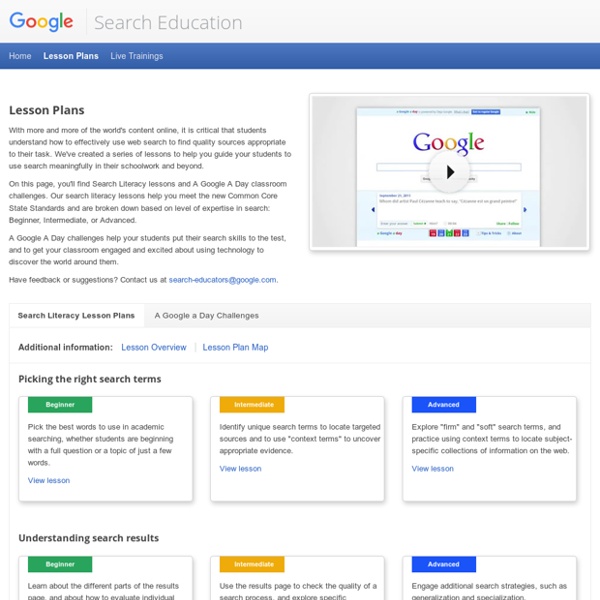How Does Google Work? Learn How Google Works: Search Engine + AdWords
The following infographic was created years ago when Google had a content-first focus on search. In the years since then, the rise of mobile devices has caused Google to shift to a user-first approach to search. We created a newer infographic to reflect the modern search landscape here. Vote on Hacker News, or Bookmark this on Delicious
Encouraging the ‘why’ behind information literacy skills: a student perspective – Information Literacy Spaces
I recently read this article by Barbara Fister, and it was as if something jumped off the page at me. I recommend you read it as there’s a tonne of really valuable insight in there about the intricate web of information overload that we’re in in this ‘post-truth’ era. Here are a few key passages that particularly resonated with me as a budding psychologist and information literacy enthusiast. First, When you’re trying to figure out where you are in this new academic setting, just surviving may take up all your energy. When we talk about “student success” we’re not necessarily talking about lifelong learning…we’re talking about the ability to perform well as a student, to write academic prose, format footnotes, and draw from scholarly sources without getting in trouble for plagiarism.
Information Power
The mission of the library media program is to ensure that students and staff are effective users of ideas and information. This mission is accomplished: by providing intellectual and physical access to materials in all formats by providing instruction to foster competence and stimulate interest in reading, viewing, and using information and ideas by working with other educators to design learning strategies to meet the needs of individual students.
How to Write Lesson Plans
.. adapted from Writing Lesson Plans from the Huntington College Education Department Madeline Hunter's (Seven Steps) Anticipatory Set (setting the stage)--attention-getter and focuser Statement of Objectives--tell students what they'll be able to do as a result of the lesson Instructional Input--lecture, but not necessarily lecture: demo, explanation, instructions Modeling--demonstrate, show what you tell Check for Understanding--watch faces, ask questions Guided Practice--help students start practicing new skills, applying new knowledge Independent Practice--turn them loose to work on their own, homework assignment, etc. Example
Meet Google Drive – One place for all your files
One account. All of Google. Sign in to continue to Google Drive
Musings about librarianship: 6 common misconceptions when doing advanced Google Searching
As librarians we are often called upon to teach not just library databases but also Google and Google Scholar. Unlike teaching other search tools, teaching Google is often tricky because unlike library databases where we can have insider access through our friendly product support representative as librarians we have no more or no less insight into Google which is legendary for being secretive. Still, given that Google has become synonymous with search we should be decently good at teaching it. I've noticed though, often when people teach Google, particularly advanced searching of Google, they fall prey to 2 main types of errors.
News and media teaching ideas for secondary teachers, students and families
All links and information in this article are current as of 16 April 2020 How a newspaper is created Find out about how the Guardian newspaper is produced from start to finish: From first word to final edition is an article explaining all the processes. The nightly miracle is a short film about how the paper is printed and distributed around the country. Editorial roles There are many different roles in journalism necessary for producing a newspaper and website.
Truth, truthiness, triangulation: A news literacy toolkit for a “post-truth” world
We were guaranteed a free press, We were not guaranteed a neutral or a true press. We can celebrate the journalistic freedom to publish without interference from the state. We can also celebrate our freedom to share multiple stories through multiple lenses.
Results on ReadWriteThink
Find content from Thinkfinity Partners using a visual bookmarking and sharing tool. More Your students can save their work with Student Interactives. More Home › Results from ReadWriteThink 1-10 of 892 Results from ReadWriteThink
Free Research Databases
« Home » Who We Serve » Academic Libraries »Subjects » Free Databases Research Databases American Doctoral Dissertations



